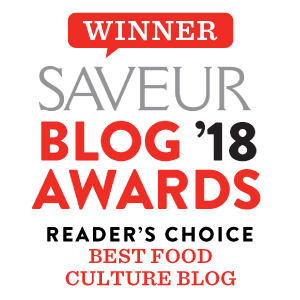Thinking & Eating – Recipes to Nourish & Inspire by the The School of Life is right up my alley. Why? It explores food as part of life, as more than eating. and why I admire their work a lot. Side note – I love Alain de Botton’s writing and this piece on crushes has to be one of my favorite reads the world over. Anyhow, back to food.
I got sent a free copy. This review is based on my thoughts and opinions.
It’s a sizeable book in thickness, you might be tempted to call it a tome. At first glance, it made me think of the power in simplicity and I was super excited about diving in and seeing how they merged food, life, philosophy and psychology.
Split into three, we begin with the introduction – A Food Manifesto which sets the scene and explores material and immaterial values of food through a very Eurocentric lens. It entreats us to use food culture to return to ‘our own best convictions where food exists as beyond the belly, beyond sustenance in what I think of as ‘comida‘ – food for the soul. I’m a huge believer in food as a practice for mindfulness, as anchors in heritage and legacy. It would have been interesting to see other cultural philosophical perspectives and perhaps to explore the role of memory in strengthening the power of food.
The second and largest section is where the Recipes live and that’s split into colour-coded subsections which explore ingredients. There’s the key ingredients section which looks at the virtues of fruits and vegetables, and their symbolism so lemon is hope and lime playfulness. Interesting. I personally would have set lime as reawakening for many reasons, the fragrance on my fingers, the brightness on my taste buds, the astringency. Olive oil is diplomacy. And instantly I think of West African palm oil. But I agree, olive oil has really set Italy and the other producing countries on a level where it could be a great negotiating tool.
Recipes continue with more explorations – personal, with friends, relationships, good enough and food for thinking. On these pages, in these spaces, there are excursions to existentialism in food in my mind. I enjoyed the questions like ‘I can’t cook’ and what happens ‘when things go wrong’ because they reflect real life and quite often the unrealistic high standards we hold ourselves again. I know there was a time when failing at a particular thing spelled doom for me, meant failure in life but that’s so not true and so I enjoyed the short but important affirmations and encouragement.
The final section is all about Conversations. Ways to engage people, questions to ask. It’s one you could use for so many things – at home, at work. Really good inspiration.
Overall, I like the concept of the book. It provides great context for the multiple ways food is beyond the plate, more than eating and that’s something that resonates with me. It’s full of great, easy to accomplish recipes. Its one weakness is adopting a largely European/ Western focus with not a lot of global diversity. It showcases the same cultures and cuisines I encounter in majority of the the food media I consume. As a Nigerian, West African, Black person, it’s weird – though not unexpected – to see no traces of your rich culture on the page.




Wow I love your fantastic review Ozoz. Saw your equally brilliant guide to lemon puree, made notes too, and will make in a minute as there’s a Cape rough lemon tree bearing hundreds of large gorgeous lemons a year in this Durban garden. Needed to thank you first, and best wishes for more great articles that nourish the spirit, as much as the body.
Thank you very much x I appreciate it. I’d love to see the Cape lemons!